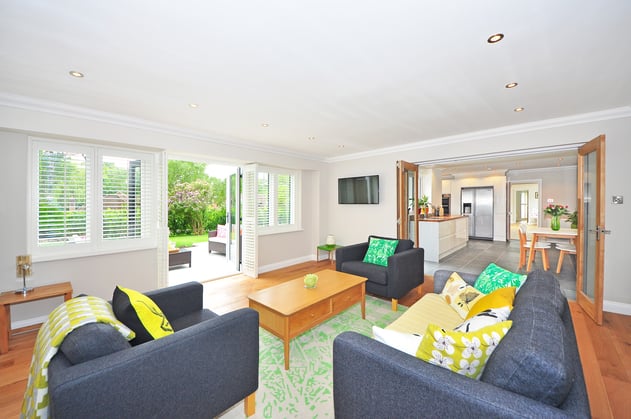BLOG
Is there a Minimum Period of Occupation Needed for Main Residence?
 Main residence relief (private residence relief) protects homeowners from any gains arising on their only or main home. However, there are conditions to be met for the relief to be available. One of the major ones is that the property is at some time during the period of ownership occupied as the owner’s only or main home. Where this is the case, the period of occupation as a main home is sheltered from capital gains tax, as is the final 18 months of ownership, regardless of whether the property is occupied as a main home for that final period.
Main residence relief (private residence relief) protects homeowners from any gains arising on their only or main home. However, there are conditions to be met for the relief to be available. One of the major ones is that the property is at some time during the period of ownership occupied as the owner’s only or main home. Where this is the case, the period of occupation as a main home is sheltered from capital gains tax, as is the final 18 months of ownership, regardless of whether the property is occupied as a main home for that final period.
Living in a property for a period of time is worthwhile to secure main residence relief, not least because doing so has the added benefit of sheltering any gain that arises in the last 18 months of ownership.
But, how long does the property have to be occupied as a main residence to trigger the protective effects of the relief?
Quality not quantity
A recent decision by the First-tier tax tribunal confirmed that there is no minimum period of residence that is needed to secure main residence relief – what matters is that there has been a period of residence as the only or main home.
The case in question concerned a taxpayer who ran a property development company and who purchased a property in which he intended to live in as a main home. The property was initially purchased through the company, but the taxpayer intended to obtain a mortgage to buy it from the company. He lived in the property for a period of two and a half months whilst trying to sort out his finances. As a result of the financial crash, he was only able to secure a buy-to-let mortgage, the terms of which precluded him living in the property. The property was let to a friend, but the taxpayer moved in briefly following the friend’s death and undertook some decorating with a view to moving back in with his family. Due to health problems, this did not happen and the property was sold, realising a gain.
The Tribunal found that the taxpayer had lived in the property as a main home, albeit for a short period. It was the quality of occupation, not the quantity, that was important. Consequently, main residence relief was available.
Second homes
Where a person owns a second home, living in it as a main residence, even if only for a short period, can be beneficial. This will protect not only the gain relating to the period of occupation from capital gains tax but also the last 18 months.
Get in touch with Inform if you need us to assist with your tax return.
Read more of Inform's tax blogs:
Calculating your dividend tax bill
Claiming tax relief for employment expenses






.jpg?width=1500&height=1000&name=amy-hirschi-K0c8ko3e6AA-unsplash-(5).jpg)

